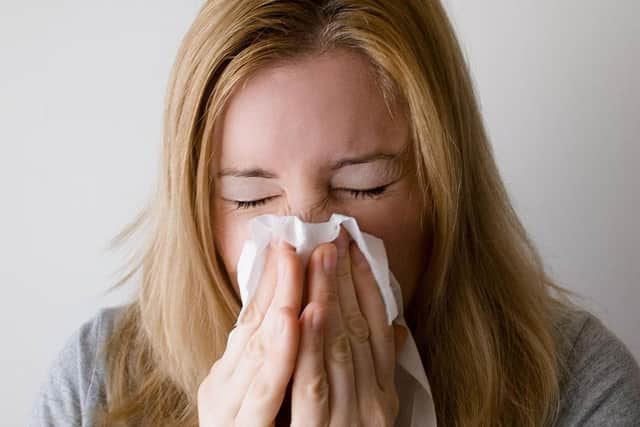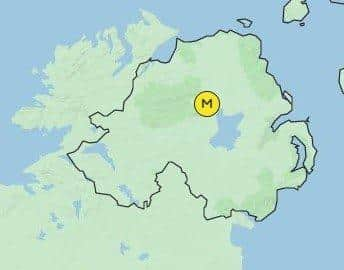Pollen count: is Northern Ireland to be hit by ‘super pollen’ misery?
and live on Freeview channel 276
With this so-called “super pollen” likely to cause misery across a wide area, hay fever sufferers in Northern Ireland can be reassured by the latest information on the local pollen count.
According to the Met Office, the pollen level in Northern Ireland will be at medium this weekend and for the next few days at least.
Advertisement
Hide AdAdvertisement
Hide AdThe weather service says that grass and nettle pollen risk will rise substantially when good weather occurs.


However, anyone travelling to many southern and eastern parts of the UK, including London, Wales and Cornwall should be aware of the “very high” pollen counts there.
The levels in Scotland, meanwhile, will be low.
What are the symptoms of hay fever?
The NHS lists the following symptoms:


Sneezing and coughing
A runny or blocked nose
Itchy, red or watery eyes
Itchy throat, mouth, nose and ears
Loss of smell
Pain around your temples and forehead
Headache
Earache
Feeling tired
If you have asthma, you might also:
Have a tight feeling in your chest
Be short of breath
Wheeze and cough
When is hay fever most likely to be a problem?
The NHS says hay fever is usually worse between late March and September, especially when it’s warm, humid and windy. This is when the pollen count is at its highest.
How to ease symptoms of hay fever
You can take a number of steps to ease symptoms when the pollen count rises:
Put Vaseline around your nostrils to trap pollen
Advertisement
Hide AdAdvertisement
Hide AdWear wraparound sunglasses to stop pollen getting into your eyes
Shower and change your clothes after you have been outside to wash pollen off
Stay indoors whenever possible
Keep windows and doors shut as much as possible
Vacuum regularly and dust with a damp cloth
Buy a pollen filter for the air vents in your car and a vacuum cleaner with a HEPA filter
Try to stay at home and avoid contact with other people if you have a high temperature or you do not feel well enough to do your normal activities